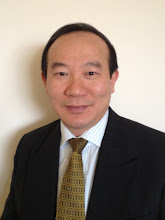TCM is an Excellent Alternative Option for the Treatment of Allergic Diseases
Acupuncture is non-invasive, gentle and painless. It is also the most effective and deepest healing method for the elimination of allergies and allergy related conditions. The modern scientific explanation is that acupuncture stimulates the nervous system to release chemicals in the body that influence the body’s own internal regulating system. This strengthens the body’s resistance and balances the body’s antigen-antibody reaction to relieve allergic disease symptoms, as well as improving one’s general wellbeing. Acupuncture combined with herbal medicine is an excellent complementary and alternative treatment option for allergic diseases including asthma, hay fever and eczema, because it
- improves and balances the immune system
- reduces allergic reaction
- reduces mucus and phlegm
- reduces bronchial inflammation
- adjusts the sympathetic and parasympathetic nervous system in order to expand the walls of the airways
- increases the capacity of the lungs
- Focuses on diagnosing and treating both the symptoms and the root cause of imbalance.
- Detoxifies the body, regulates the immune system and the adrenal gland to allow the body to reap substantial long-term health benefits in managing allergies.
- Is a holistic treatment that also addresses any related imbalance in health as well as emotional and spiritual factors related to allergy.
- Is a unique individual and personalized approach. Since treatment depends on patterns differentiation in Chinese Medicine, each patient’s has a different configuration of symptoms and signs, which makes treatment very specific and appropriate.

